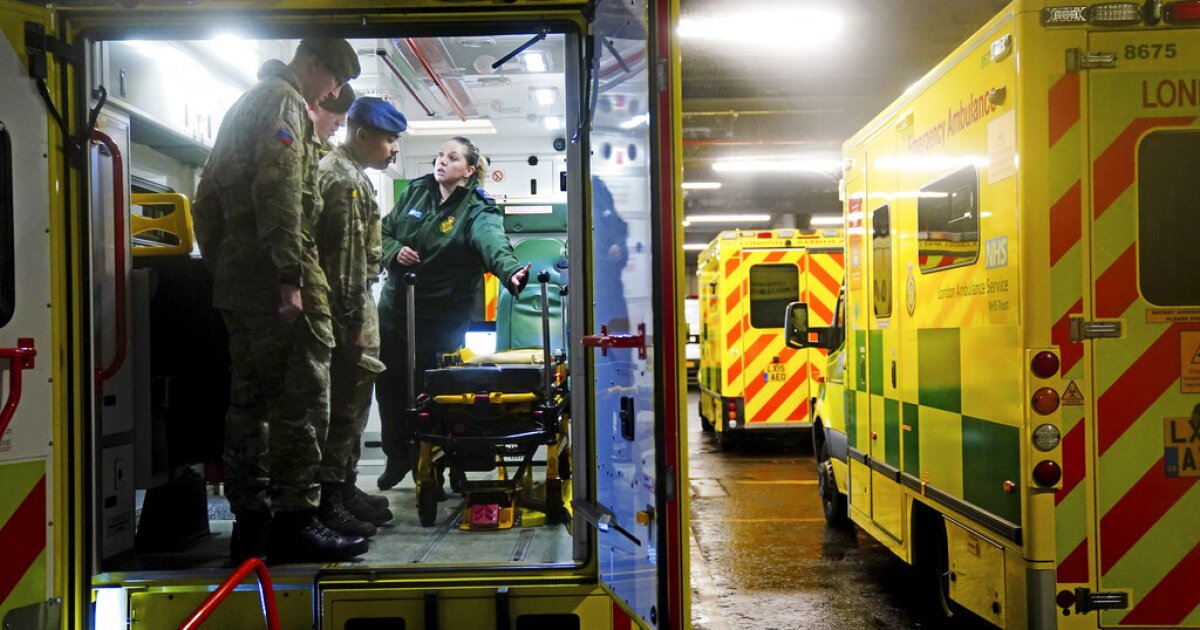

Healthcare strikes across the United Kingdom are escalating as nurses and ambulance staff join the picket lines over pay disputes with the government, leading the health minister to ask the public to scale back activities to avoid getting hurt and winding up in the hospital.
Roughly 10,000 National Health Service nurses in England, Wales, and Northern Ireland are taking part in the second strike in less than a week on Tuesday in protest over their scheduled pay increases next year as unions argue that the pay hike does not account for inflation and the rise in the cost of living.
CHILDREN’S FEVER AND PAIN RELIEVING MEDS IN SHORT SUPPLY— HERE’S WHY
Another 10,000 ambulance staffers in England and Wales are striking on Wednesday over pay disagreements, prompting health officials to advise people of extensive disruptions.
Health Minister Will Quince suggested Tuesday that people should avoid “risky activity” such as contact sports or running on icy roads, among other activities, noting that they were working with ambulance unions to respond to high-level emergencies during the strikes.
“If there is activity that people are undertaking tomorrow, whether it’s, for example, contact sport, they may want to review that,” Quince told BBC Breakfast.
The government is already employing the help of 1,200 military members and 1,000 civil servants to fill staffing gaps during the ambulance strikes. Hospitals have also been urged to free up their beds by discharging patients they are able to.
Healthcare unions have called for larger pay increases than they have been offered for next year, suggesting the pay hike will worsen staffing shortages, affecting patient safety.
Most NHS nurses in England and Wales are scheduled to receive a 4% pay increase on average. The Royal College of Nursing union has requested a 19% increase in pay and set a 48-hour deadline for the government to agree on pay starting Tuesday, which officials have said is unaffordable.
CLICK HERE TO READ MORE FROM THE WASHINGTON EXAMINER
If the government and unions are unable to come to terms, the nursing union has said it will announce more action in the new year.
The strikes come as the U.K. Health Security Agency warns of an increase in scarlet fever and severe group A infections, a severe and sometimes life-threatening illness that occurs when bacteria invade parts of the body, such as the bloodstream. There have been over 7,750 scarlet fever infections this season already, compared to the 2,538 reported during the 2017-2018 season, the last time cases were comparably high.






